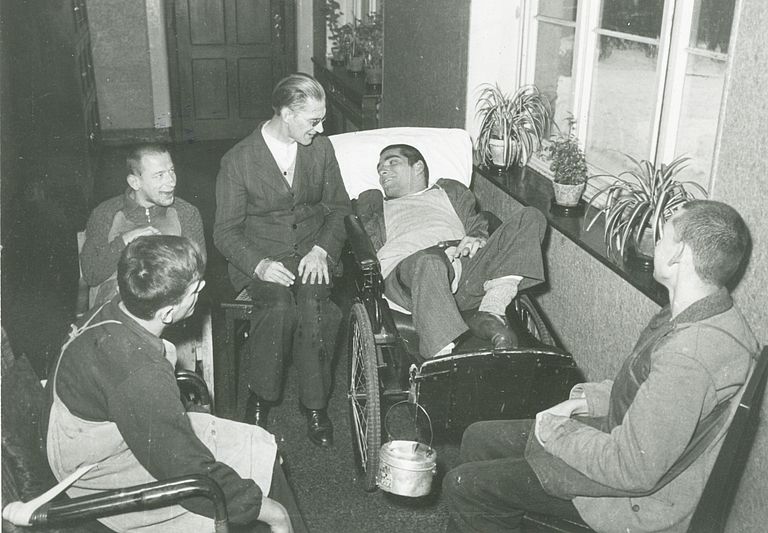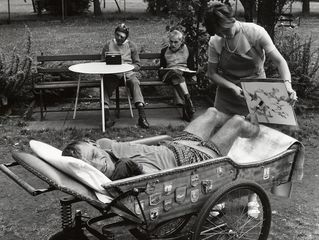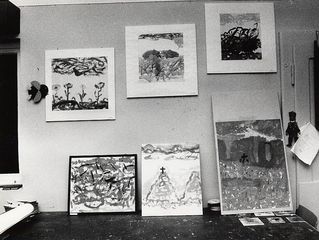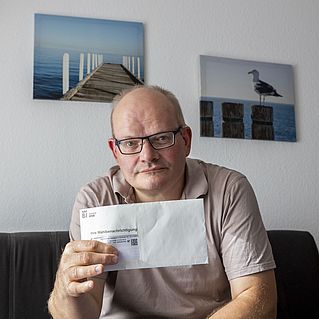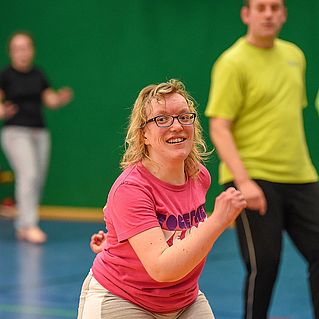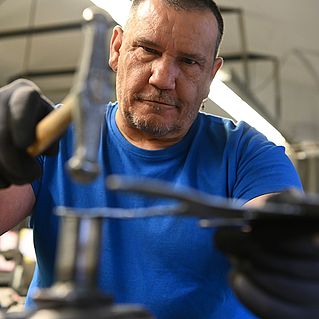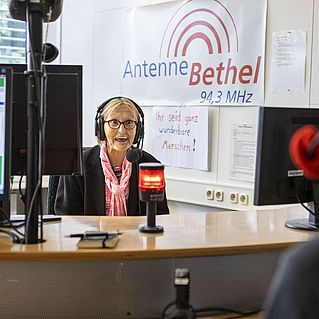Richard Dege was a special man who lived a remarkable life: he was born in Goslar in 1924, into a difficult - and between 1933 and 1945 even life-threatening - time. Physically severely impaired, he experienced the comprehensive development of the German welfare system of the 20th century first-hand. It is the unusual life story of a man who always remained optimistic and laughed a lot, as contemporary witnesses report. And who, at an advanced age, learnt to paint so well with his foot that he became a minor celebrity.
In January 1932, the then seven-year-old Richard Dege was brought to Bethel by his parents. They hoped that their son would be cared for and supported according to his needs. The boy suffered from a cerebral movement disorder with seizures, caused by brain damage at birth. Richard Dege was admitted to Haus Patmos, where he lived for the next twelve years.
Inclusion, participation or even personal self-realisation, which characterise Bethel's work today, were unknown concepts at the time. But even then, there were endeavours at Bethel that corresponded precisely to these goals. The staff went to great lengths to support Richard Dege so that he could participate in the life of the institution as much as possible. This also meant that, like all children at Bethel, he received regular schooling right from the start. During the years of fascist Germany and the Second World War, the boy was able to remain at Bethel in his familiar surroundings, undisturbed by the reprisals of the National Socialists.
In the post-war years, Richard Dege witnessed a new development: awareness of disability-friendly living increased, even if the circumstances at the time were still very different from today's possibilities. Richard Dege's file contains a number of references that indicate how much interest there was in an "inclusive community". One example of this is the purchase of a pushchair made especially for him. This chair made Richard Dege more mobile and enabled him to take part in group activities.
